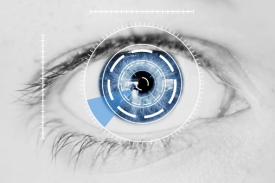 Heard about the Internet's creepy next wave? If you haven't, Sue Halpern's coverage of four recent books on the subject gives you a front-row seat on the spectacle that is slowly and quietly unfolding behind closed doors.
Heard about the Internet's creepy next wave? If you haven't, Sue Halpern's coverage of four recent books on the subject gives you a front-row seat on the spectacle that is slowly and quietly unfolding behind closed doors.
Here is an example of this technology: "Among the enchanted objects are the Google Latitude Doorbell that 'let's you know where your family members are and when they are approaching home,' an umbrella that turns blue when it is about to rain so you might be inspired to take it with you, and a jacket that gives you a hug every time someone likes your Facebook post."
At first glance these options seem dazzling until one realizes that the Google Latitude Doorbell which records our comings and goings not only limits our privacy but might be used in a court of law. Halpern quotes journalist Glenn Greenwald who put the number of Americans under government surveillance at 1.2 million people.
Things know our heart rate, favorite movies, personal grooming habits, medications, and preferences in music, dining spots, and sports. We wonder about this "datazation" of our bodies, our intimacies, and all our activities in the world. We cherish the freedom that comes from not being monitored by this new kind of connectivity. What choices are we making, and what choices are being taken away from us?
Next Post: Radical Amazement: Nature and the Spiritual Life of Children
